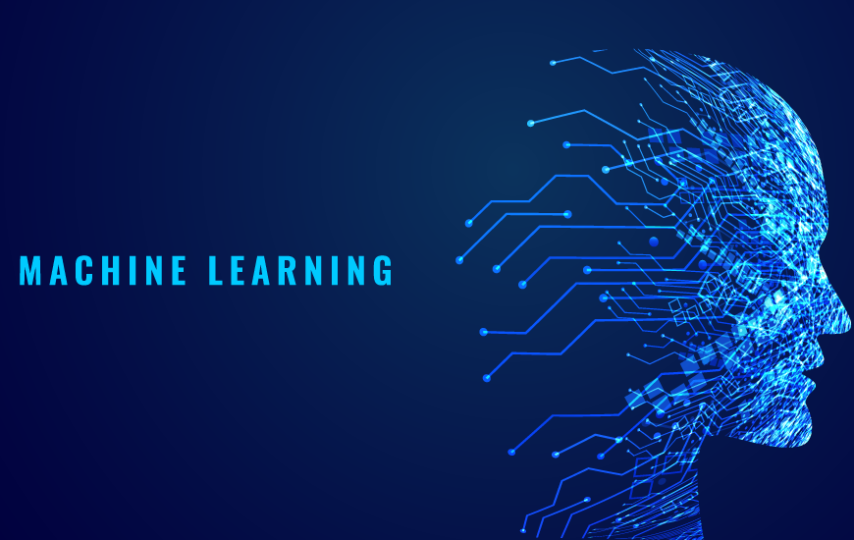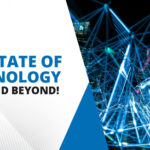During the recent rise and fall of Pokémon Go, augmented reality was in wide discussion. Similarly, Smart Automation and Machine Learning are the buzzwords in recent times. Smart Automation and Machine Learning together are not only redefining the technology landscape for businesses the world over but also the jobs of the 21st century.
Challenges for Human Advancement:
Limited human intelligence pool was always touted as the hurdle for human advancement. However, the human limitations of sleep, energy depletion, and weariness are the real culprits and the deterrents for the seamless functioning of the human brain. They set a natural fence for stretching beyond a limit. On the other hand, the collective intelligence pool augmented through smart databases and coupled with Smart Automation and Machine Learnin can continuously churn out calculations and reports for forecasts, product launches, strategies, etc., in a 24×7 manner.
Possibilities created by technology for Human Advancement:
With the technology evolution, the business technology landscape has seen man-to-machine conversation. In the emerging times, we will also see machine-to-man and machine-to-machine conversations. The changes are already seen in bits and pieces in the form of interactive voice response and automated vending machines.
Technology, in a way, is not challenging the human beings but offering fresh avenues to harness the technology advancements and make a quantum leap of evolution in the human genome ancestry.
Remember, MS Excel and the accounting packages that followed suit had changed the way the businesses maintained their manual accounts in a topsy-turvy manner that finally gave way to a whole new experience of online accounting and capability for endless analyses. The capability allowed businesses to seamlessly manage huge quanta of additional accounting work and support upward spiralling top-lines of businesses.
Information Explosion and a Bright Future Ahead:
Technology is not just an enabler; it is an indispensable business tool. With the information explosion and the corresponding number of bits competing with the number of stars in the universe, the new age executives are finding it increasingly difficult to harness the explosion without a suitable tool. Here, Smart Automation and Machine Learning are the only way ahead and in the process giving rise to a redefined technology landscape and superior job functions. Here are a few tips to harness the evolving technology and be prepared to embrace the new world order:
Enhancing Business Productivity
Today, enterprises need to increasingly reinvent themselves and evolve so as not to risk disruption. Reinventing oneself in the form of digital platform economy powered by smart automation or interconnected shared economy around their data to intelligence journey increases business productivity. It also provides succour during these times of technology disruptions and allows focusing more on core business. In an era where industry boundaries are already blurred, enterprises can overcome the disruptive forces by paving new paths and aligning and growing around more and more global entities harbouring shared interests. The approach will not only create tremendous business value but also result in exponential growth through the process of evolution.
Automation technology, which can be used efficiently in industries, such as Insurance, Banking, and Financial Services etc. has gained significant momentum, and is imparting strong impetus to various industries.
Smart Automation in Banking and Healthcare Industry
- Banking Industry – There aren’t numerous industry sectors in the world that have as a lot of potential for automation as the banking sector does. The implications of automated banking processes are huge, which is the reason the leading smartest banks are attempting to automate, as many of the financial and banking processes as possible. In the banking sector, it’s all about providing the finest customer service, which can provide value to the customer in the best possible way. Automation has allowed banks to deliver services that are highly reliable, faster and convenient for the customers.
- Healthcare Industry – Automation in the healthcare sector has assisted with digitizing all the paperwork, record it and store it for future reference. Managing medical claims, health diagnosis reports and updating the data with corresponding to various other medical enterprise systems. The technology has helped to automate routine tasks, synchronize all the digitized data, monitor appointments, and sort out all the records in an up-to-date way. These automation systems can operate 24×7, and ensure quick and accurate processing such that the businesses can deal with more work at a quickened pace. Assignments that took various days are currently finished in minutes, for instance moving patient clinical information from old systems to new systems, gathering medical history information from different systems and creating new data insights by utilizing artificial intelligence and Machine Learning – AI/ML.
- Envisage the Future Landscape for your Business:
With the ground breaking advancements in technology and the manual work giving way to automation, job roles are getting redefined. Managers, analysts, and the roles that be in the company, who are now well versed with the domain knowledge need to function as techno-functional managers. They now need to team up and chart out a clear-cut future landscape for their business vis-à-vis technology advancement. The design thinking and sustainable innovation that thus evolves surely leapfrogs the business functions to a much higher level than earlier.
For example: BFSI sector envisaged the use of Robotic Process Automation (RPA) or Smart Automation to alleviate the human efforts put endlessly in mundane repetitive tasks. RPA executes repetitive tasks more accurately than humans. It interacts with the existing software applications at the graphic user interface level and brings about a virtual integration of multiple existing systems. With the spare time at hand, the human resources well versed in domain knowledge, and now functioning as techno-functional managers, can focus more on the strategy and design aspects of the business.
- Get conversant with new technologies:
The techno-functional managers should make lee way for the fresher’s to spend a day or two with them in their revised capacities to get a feel of where technology is advancing. The fresher’s thus can hone themselves for the bigger challenges right from the beginning.
For example:
1) Spending time in a bank’s credit card control room, which monitors real-time transactions, can give the fresher’s a glimpse of the extent to which technology has advanced.
2) Spending some time with a BFSI company’s back office operations department can provide substantial insight into how manual work can be replaced with Smart Automation that also creates a database simultaneously. This database can be leveraged for heightened insights in the customer’s transactional history.
The technologies, such as RPA, Business Intelligence, Predictive Analytics and Prescriptive Analytics, Data Science, Internet-of-Things, Mobility, etc., have given a revolutionary edge to the business functions.
- Make it large for your customers:
Think beyond what the new technology landscape has to offer your business. Think in terms of how the change in your technology landscape can affect your customer’s profitability so that you can position yourself for better technology investments and human resource investments accordingly.
For example: If you are a BFSI player, think of investing in RPA capabilities, Machine Learning tools, and products that can save big bucks for you and keep your customers engaged through a great customer experience. The deployment of RPA and Machine Learning itself can not only speed up the manual work but also provide astounding ROI for your business along with amazing customer delight coefficient. RPA links existing software applications without a direct integration thus saving expenses on massive technology upgrades and providing instant ROI. Whereas the Machine Learning provides insights even from streaming customer data that can be used to promote just-in-time marketing, which results in customer delight.
Conclusion
Smart Automation and Machine Learning eases the burden of mundane manual tasks and enables businesses to take their operations to the next level. This new age technology redefines the jobs and frees the time that is used for making individual leaps and discoveries. It allows focusing on and contributing towards taking a quantum leap in development of new age solutions for performing tedious routine tasks.







